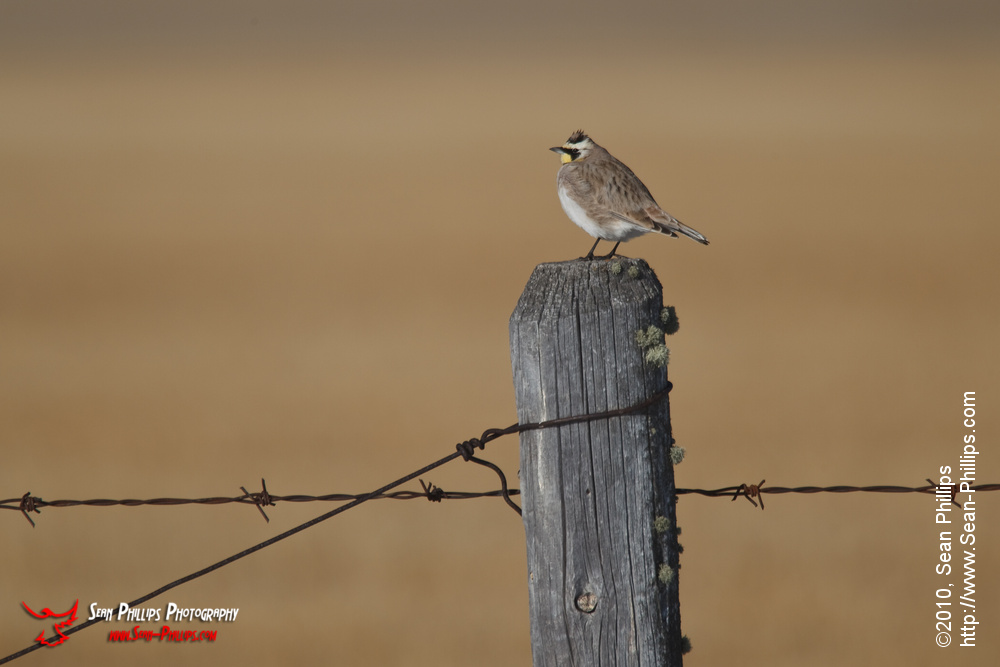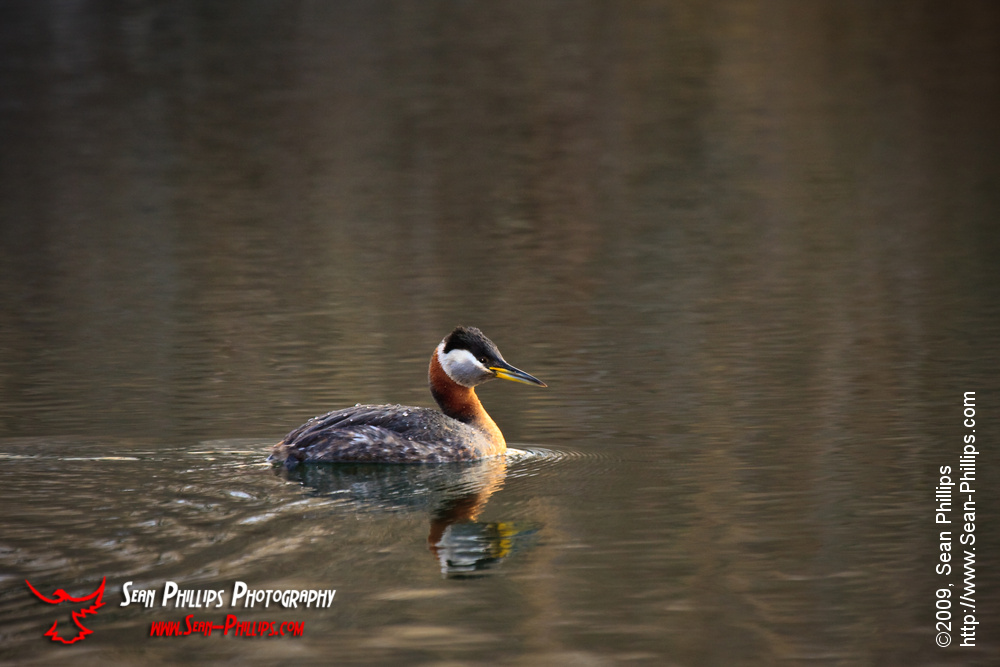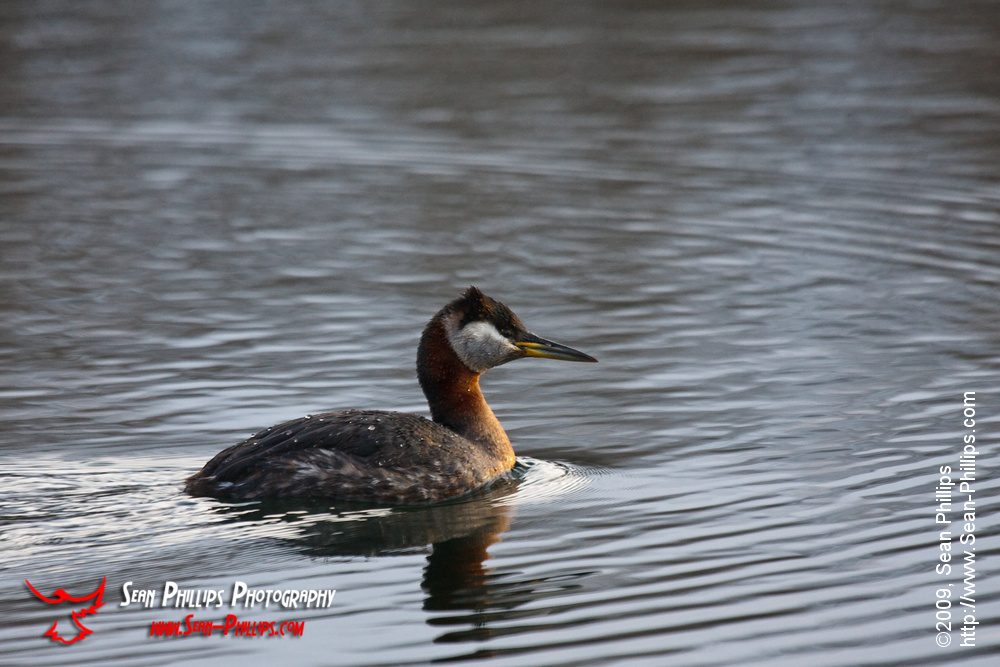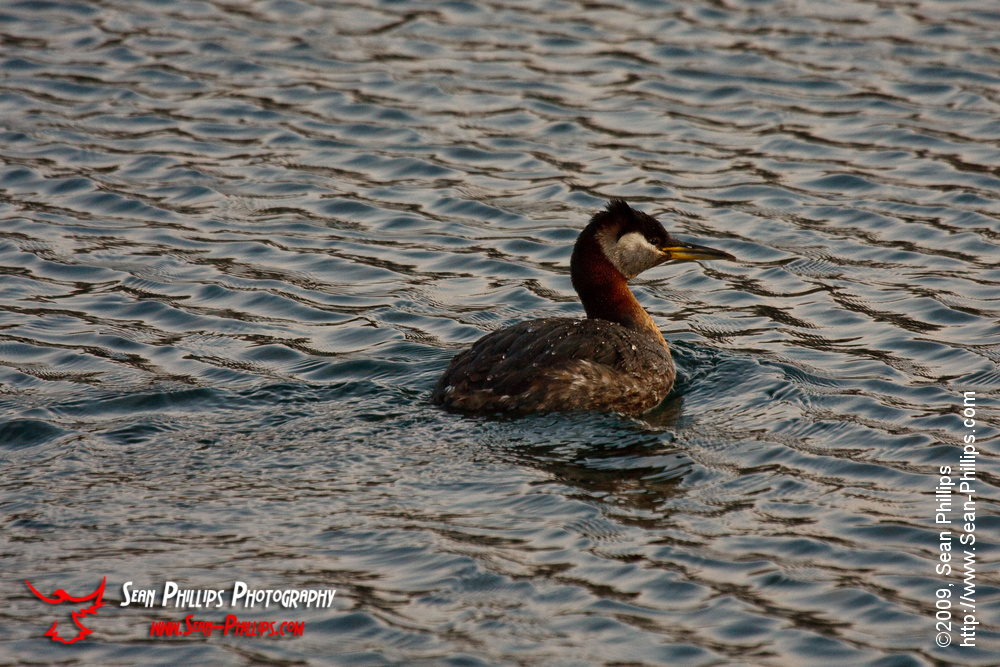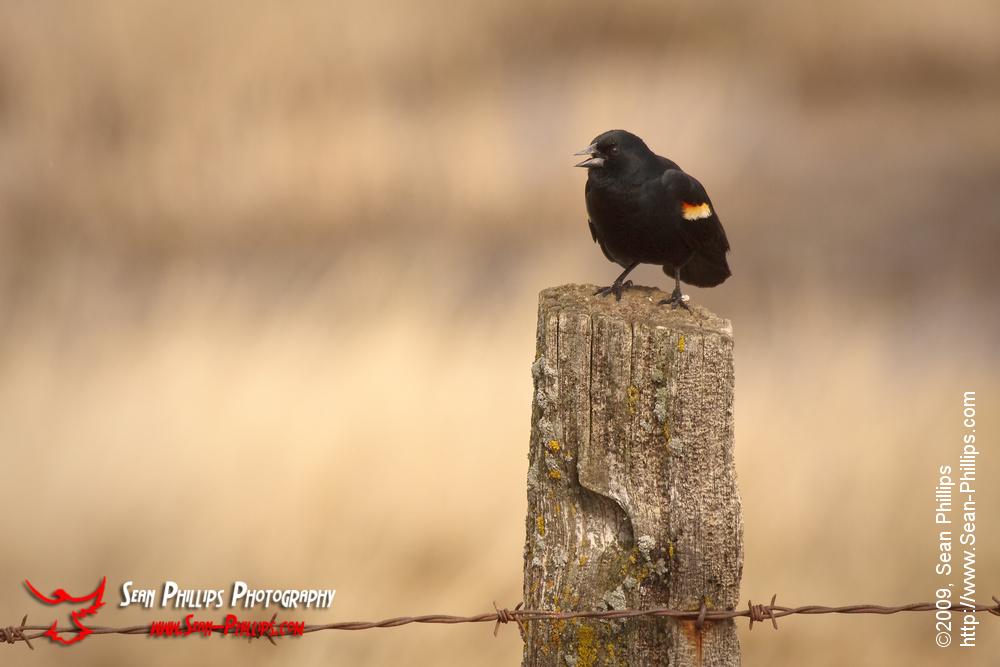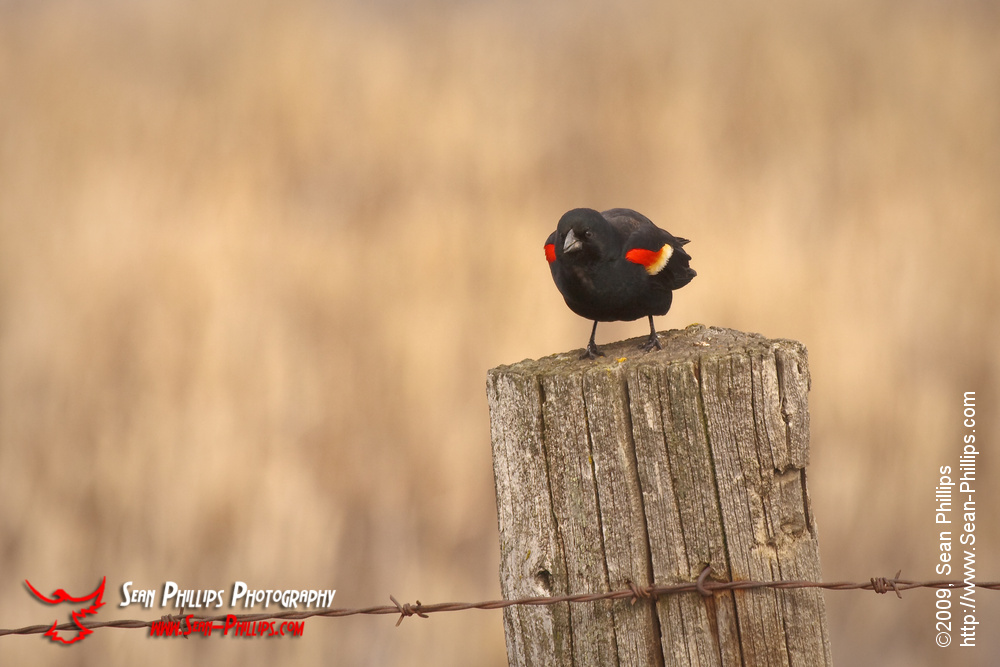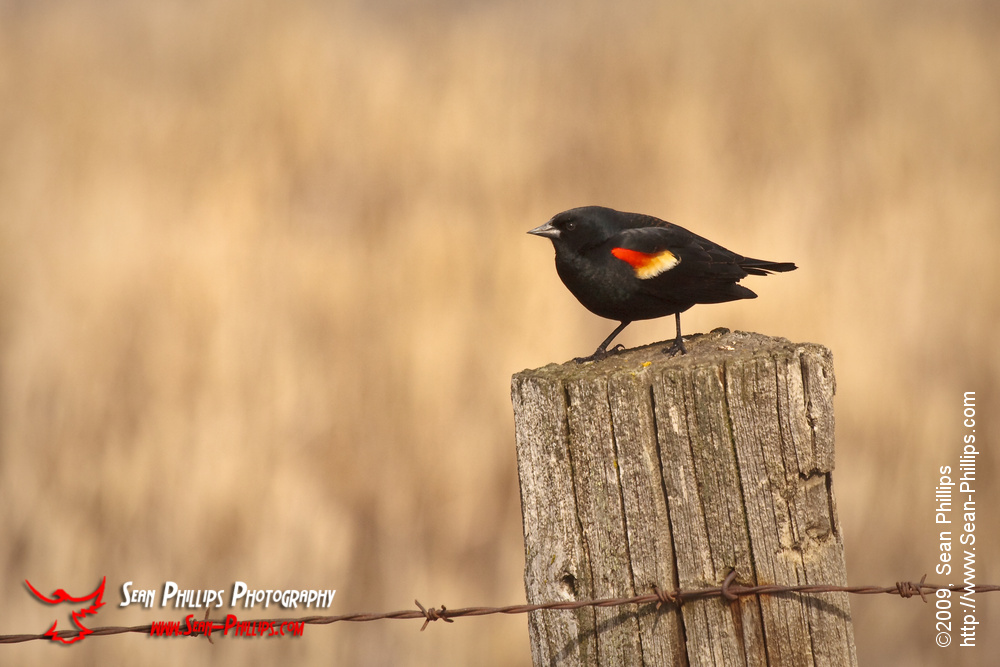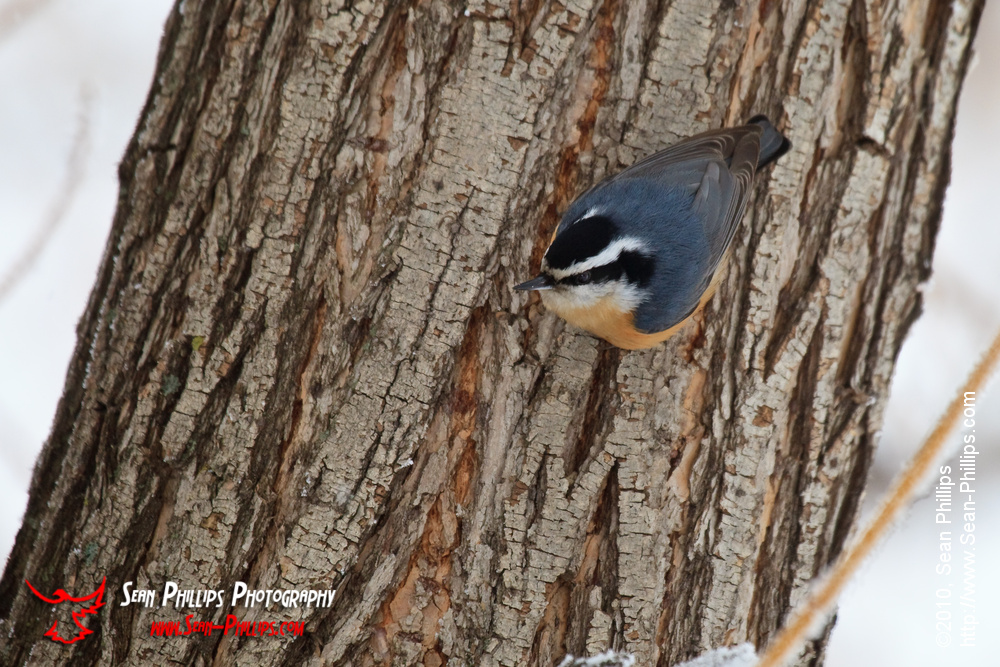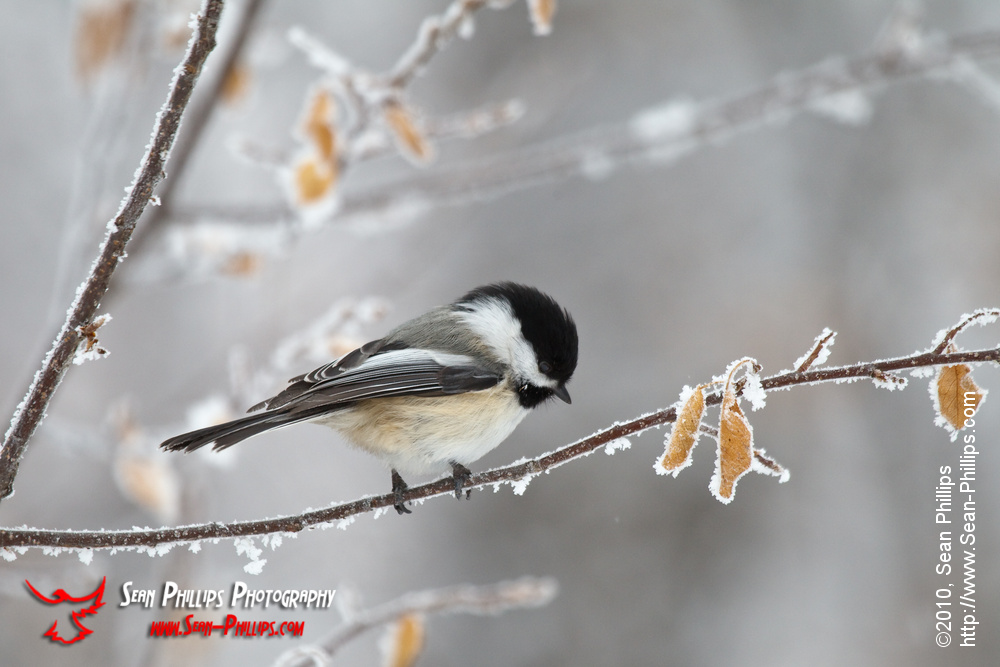This bird is a new find for me! I had heard several reports of Horned Larks having been seen in the area recently, which many take to be a good sign of spring approaching. So I was very excited when I actually saw this one perched on a post. It was singing away and at first I mistook it for a Western Meadowlark. Although the two species are very similar at first glance, the tufts on the head of the Horned Lark are a sure giveaway and make them very easy to tell apart.
Author: Sean
Golden Prairie Landscape at Sunrise
It continually amazes me how the sunrise on the prairies can be so beautiful, and yet still so different every day.
The golden glow of the early morning light set up a great silhouette of these Grain Elevators way back on the horizon. the light changes extremely quickly at sunrise and I had only a few moments to enjoy it before it disappeared.
Red-necked Grebe at Carburn Park
I love Carburn Park and I’m always amazed by the things you can see there. Grebes are actually quite common there at certain times of year, but it’s surprisingly difficult to get one to pose for a picture while the light is good enough to make something decent out of it. I went back several times after I found this one as it was quite obliging!
Red-winged Blackbird on a Fencepost
This is another image I made way back in the spring when the Blackbirds had first returned to the prairies near Calgary. I was very excited to have them back in the area because they are very curious and even more fun to watch. They sing all the time and are never too shy to pose for the camera! I watched this one for a long time before we were both ready to move on.
Red-breasted Nuthatch
Although Nuthatches are very common in Calgary I really haven’t encountered very many of them. They are very interesting birds that are known for their unique ability to face head-down while climbing. Most other birds use their tails to assist with balance while climbing, but nuthatches use only their legs and claws. They can often be seen walking straight down the trunk of a tree. This behavior seems very odd when you first recognize what they are doing, and only becomes more odd as you realize that very few birds do it.
